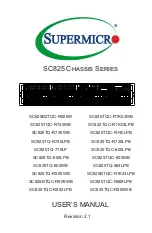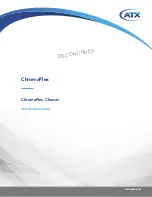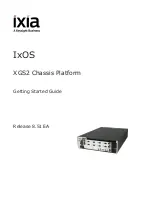
Modifying Intercepts
One LI administrator can access and/or modify the intercepts created by another LI administrator. Whenever
an intercept is added, removed or modified, an event log is displayed across LI administrators about the change.
An SNMP trap is also generated.
Adding, Modifying and Removing Users
It is considered uncommon for a user to be added or removed from the system. Likewise, it is considered
uncommon for a user's privileges to modified. However, if the system is compromised, it is common for
attackers to add or remove a privileged user, raise their privileges or lower the privileges of others.
As a general rule, lower privileged users should not be allowed to increase their privileges or gain access to
sensitive data, such as passwords, which were entered by higher privileged users.
The system can only detect changes in users and user attributes, such as privilege level, when these users
are configured through the system.
Important
Notification of Users Being Added or Deleted
Users with low level authorization should not be able to create users with high level authorization. However,
if a malicious actor were to be able to create a high level authorized user, they could then delete the other high
level authorized users, thereby locking them out of the system.
The following SNMP traps notify an administrator when users are added or removed:
•
starLocalUserAdded
–
indicates that a new local user account has been added to the system.
•
starLocalUserRemoved
–
indicates that a local user account has been removed from the system.
Notification of Changes in Privilege Levels
Whenever a user's privilege level is increased or decreased, an SNMP notification will be sent out. A malicious
actor may gain access to more privileged commands by somehow promoting" their privileges. Once this is
done, they could then "demote" the privileges of all the other users, thereby locking the proper administrators
out of the system.
The
starLocalUserPrivilegeChanged
trap indicates that a local user's privilege level has been changed.
User Access to Operating System Shell
The
starOsShellAccessed
trap indicates that a user has accessed the operating system shell.
ASR 5500 System Administration Guide, StarOS Release 21.5
78
System Security
Modifying Intercepts













































